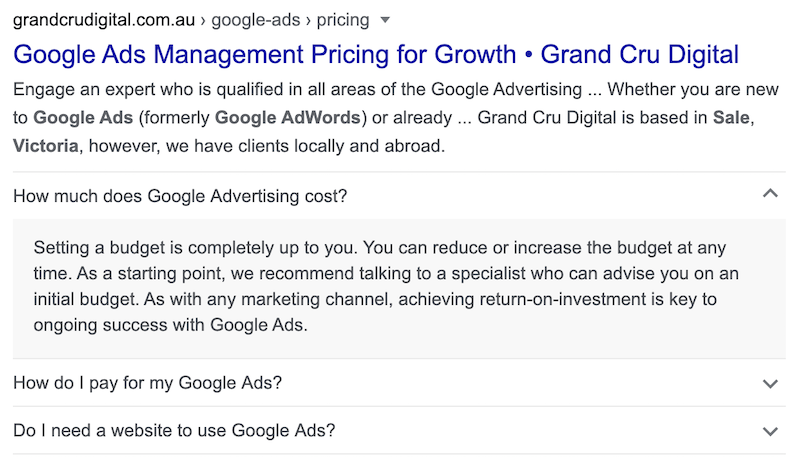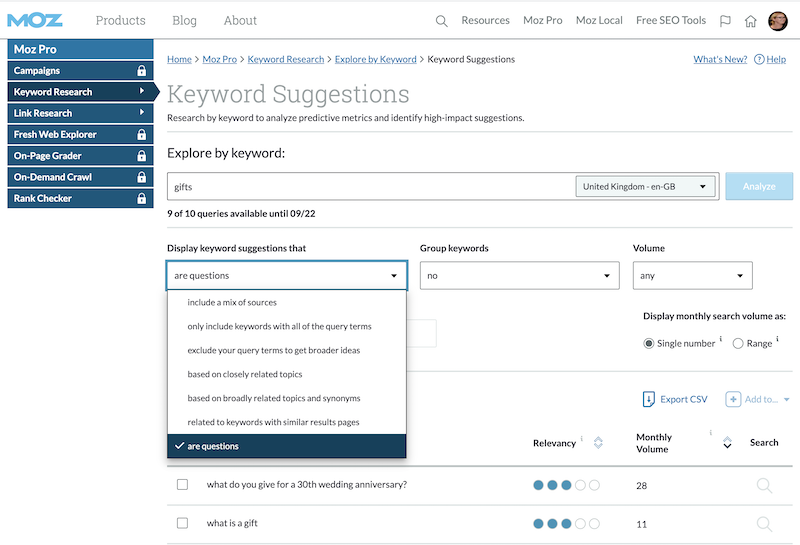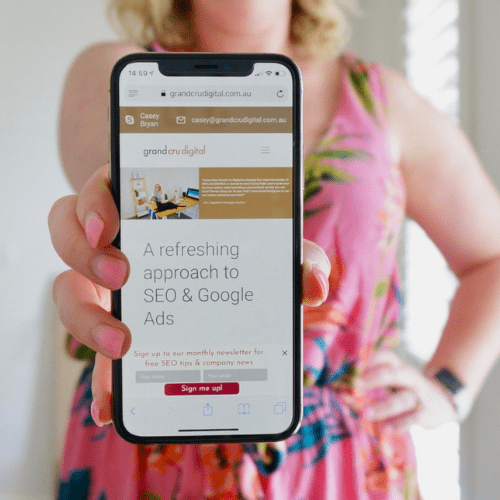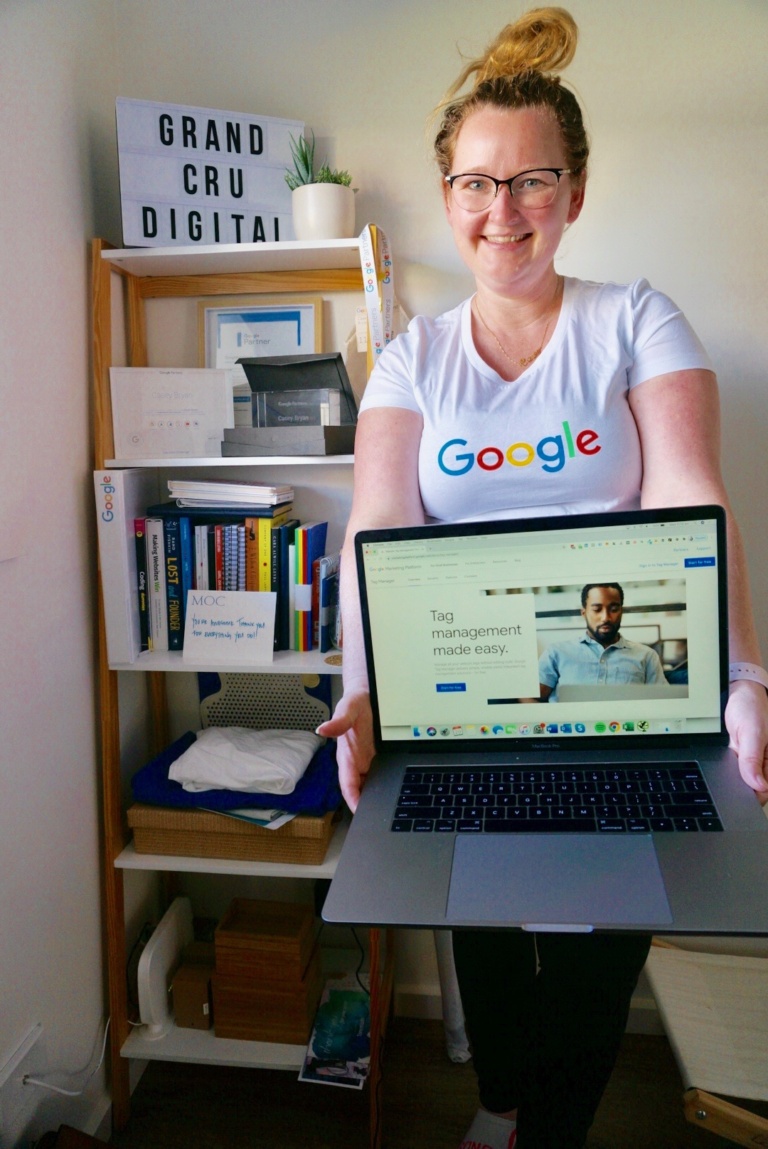Let me tell you a little secret – FAQs (frequently asked questions) are awesome for your SEO strategy.

Every industry has frequently asked questions, no matter if you’re a locksmith, a business coach or you sell weird and wacky products.
In fact, there are probably a few questions that you get asked by potential customers all the time. They’re the questions that you groan about answering for the 100th time. So what happens if I told you, that I can save you time answering those questions over and over again AND get more people to your website?
Yes you guessed it. I am going to tell you to add those FAQs to your website!
Creating a FAQ page is a fantastic way to improve the usability of your website and make it super helpful to your website visitors. However there is also no stopping you adding FAQs to other landing pages on your website and even within blog posts too.
Here on the Grand Cru Digital website I have added FAQs on my most important sales pages like to my SEO Pricing and Google Ads Management Pricing pages.
Aside from being useful to your visitors, FAQs are fantastic for your SEO strategy. Here’s why:
People search Google for answers
When you want to know about something, you turn to Google right? With the emergence of things like voice search, more and more people are searching Google for specific questions. In fact, Google has stated that 20% of searches are voice related. I have no doubt that is only going to grow over the coming years with voice assistants like Siri and Google Home devices.
Therefore by having those popular questions relating to your products and/or services on your website, it is only going to help people find answers to their questions easier. And at the end of the day Google loves websites that focus on helping people get the answers they are searching for. And the more Google loves your website, the higher your website is going to be shown on the search results right?
You can use FAQs to enhance your search results
If you haven’t jumped onboard the featured snippets aka enhanced search results train, then you need to level up your SEO game stat. If you can enhance how your website is displayed on the SERPs (search engine result pages) to stand out from the rest, you really should jump on any opportunities to do so right?
Which is why here at Grand Cru Digital we absolutely love Structured Data, aka Schema.org. These SEO-jargon terms basically mean that we can add little bits of html code around elements on a webpage to tell Google more about what something is. And the more you can help Google understand your website and content the higher chance you have of ranking higher in the SERPs.
Now with FAQs, we can add what is called the FAQpage schema. You add this code around your FAQs to tell Google what is a question and what is an answer, so Google can potentially show them on the search results like this little example I whipped up:

You can implement structured data through the code directly on your website (ask your web developer to help you out) alongside via structured data plugins and even Google Tag Manager.
FAQs give you the chance to show up on page 1 of Google in the People Also Ask Section
By answering people’s frequently asked questions on your website, it will also mean you may show up in the ‘People also ask’ section on the SERPs. This section is typically close to the top of the first page, so it’s a great way to get some first page presence for your website. As we know, hardly anyone goes to the second page these days.

So that’s great and all, but how can you research FAQs for your industry?
There are so many ways you can research the top FAQs for your industry. Here are some ideas to get you started:
- Listen to your customers – what are they asking you frequently?
- Search Google – type your product/service/industry into Google and have a look at the ‘People also ask section’
- Check out AnswerThePublic
- Use SEO keyword tools, some tools like the Moz Keyword Explorer you can actually set a filter for questions:

Adding FAQs to your website is not a new thing. However I see this SEO strategy far underutilised – therefore it may just be the thing to help your SEO strategy really ‘pop’.
If you have any further questions about this post or are looking for an SEO Specialist to help your website out, please feel free to get in touch today.






